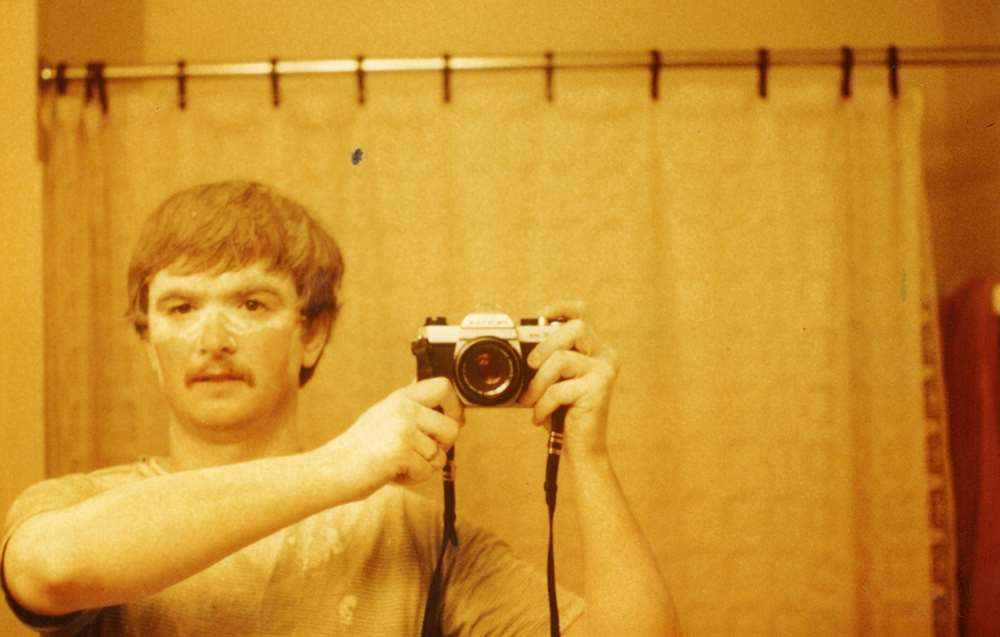My wife’s and my first home was a trilevel, with only two of the floors completed. We decided to finish the third floor ourselves, creating a family room, office, and second bathroom. I had done lots of carpentry, wiring, and plumbing before. But I had never mudded drywall.

I figured the drywall mud would sand down easily, so after hanging the drywall, I caked on mud like a teenage boy piles his plate at an all-you-can-eat buffet. And then I went back for seconds.
Alas. It took us more time to sand off that surplus mud than it took me to frame in and wire three rooms and to plumb the bathroom. Carla and I spent scores of hours of bored agony, sanding, wet-sponging, power-sanding, and bathing off our layers of dust:
I had thought mudding was the easy part.
The history of the world is the long story of bad answers.
Wrong Answers Create Greater Difficulties
Every culture offers answers. Epicureans used to say, “Live for the moment. Eat drink and be merry, and then you’ll have fun.” But today we know that too much food bloats our bellies and skyrockets our cholesterol. Eating too freely undermines our fun.
Bogus answers create bigger problems than the difficulties they hoped to solve. The problem with most bad answers is they initially seem smart: What’s so bad about a little extra mud?
C.S. Lewis said it this way, “Perfect love, we know, casteth out fear. But so do several other things – ignorance, alcohol, passion, presumption, and stupidity.”
Helping God Out
Christian movements that start in the Spirit predictably end in the flesh. The change is insidious because the bad answers initially look smart. I’ve been wondering what our 21st century “fleshly answers” are, and I think I stumbled on a hint this morning when I read Oswald Chambers.
Chambers helped lead the Holiness Movement one hundred years ago, yet he also criticized it for birthing an idolatrous, false-spiritual answer. He said,
Christians fail [when] they place their desire for their own holiness above their desire to know God.
Today we are not tempted to make holiness an idol. Instead, we place mission above our desire to know God. We say to ourselves, “I want to make a big impact for God’s kingdom,” or, “I want to raise up kids who will follow the Lord.”
It is good to want to serve God or to raise believing children (and also, by the way, to desire personal holiness). But these desires often mask “answers” designed to prop up our egos. Like the builders of the Tower of Babel, we are making a name for ourselves by helping God out.
Whenever we think we know what God needs, and then help him out, it backfires. Just as it did for Abraham when he fathered Ishmael and Moses when he murdered the Egyptian.
Let’s let God be the Lord of our kids and our missions.
It’s Spiritual Calculus
Our problem is we seize responsibility for something that belongs to God. Whenever we despair, it is because we’ve seized ownership of a thing that was never God’s will for us to take.
The greatest fruit in our lives is born solely out of our connection with God. It is his life in us that changes the world we walk in. It is never our heroics. Let’s nurture the life of God in us, not our visions of our missions.
Everything else is just caked on drywall mud.
Sam
To grow in intimacy with God, learn to hear his voice:
[vimeo id=”189561250″]
 You can purchase Hearing God in Conversation here: Buy Now
You can purchase Hearing God in Conversation here: Buy Now
And you can access free Study Guides for Hearing God in Conversation here: Study Guides



Leave a Reply